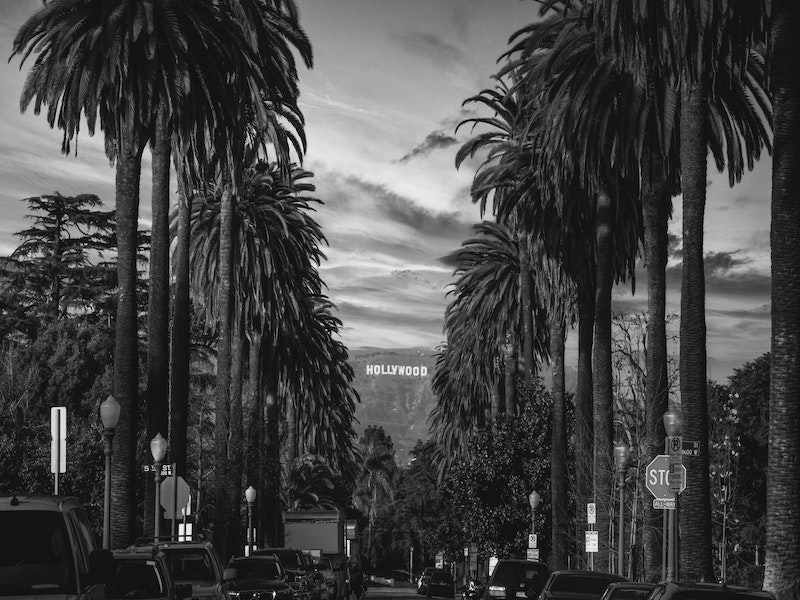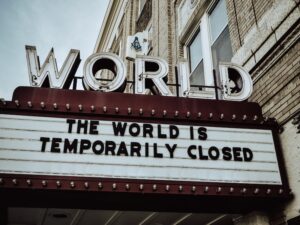World War II ended 75 years ago, you wouldn’t think it when Hollywood continues to churn out films on the subject. As the villains of the piece, the Nazis are front and centre in WWII films. When films have such a powerful influence on society, is there a danger that by dragging the past into the present, we create a platform for Nazism, helping to breed life into racism and intolerance?
With over 1300 films made about the subject, WWII is Hollywood’s equivalent of a crack habit. They can’t get enough of it.
There are reasons behind the obsession. For starters, WWII offers the perfect setting for a film. There are the villains, the heroes (all-American of course), it has a patriotic element — America going to kick some butt. Then there’s the epic nature of the war itself. Everyone understands the context and people know what they can expect from a WWII film. The material on offer seems unlimited.
When systematic racism is such a huge problem in America, having Hollywood profit from a political party whose whole ideology centres on the promotion of a master race seems morally questionable.
More than the unlimited material on offer the Nazis and WWII films are a moneymaker. After all, Hollywood is a business that wants to make money out of its investments. When the cost of making a film is so expensive a WWII film is a safe bet in guaranteeing revenue at the box office.
The power of films
The problem with the obsession is films can and have changed peoples mindsets on emotive subjects. Take Bambi for example. On its release in 1942, the film about a baby deer orphaned after its mother is killed by hunters left people distraught. The film resulted in increased awareness of conservation, and led to the ‘Bambi’ effect’ — an objection to hunting animals considered ‘cute’.
Today companies know all too well the impact a film can have on their brand. Many companies are willing to pay millions of dollars to place products within a film. Because placing the right product, in the right film can change peoples brand perception overnight. Take Tom Cruise dashing a pair of Aviators in Top Gun. The success of the film helped catapult the Ray-Ban brand into the stratosphere.
Films have the power to change a culture, they can inspire trends, make the uncool cool, and the cool uncool. In short, movies are a powerful platform that influences society unlike anything else.
So when you’re bombarded by an average of 17 films a year on such a traumatic and emotive subject as WWII, it has to have had some kind of influence on society. One such influence is how people come to understand history.
A film isn’t real
As someone with a degree in History, I understand the value of a reliable source. A film with a poetic license that seeks to entertain, is not one of those. But the historical reference points and the setting give the illusion of authenticity. The films look real, they sound real, they feel real. If people rely on Hollywood as a source of truth, who’s to say they’re not real?
It hurts me to say it, but a film is a more engaging platform than a history book, and they have helped influence views on the war. A YouGov poll found 55% of Americans believe America contributed most to defeating Germany in WWII. Every country polled agreed America’s contribution was larger than that of the Soviet Union.
In reality, the Soviet Union did the most in contributing to the defeat of the Nazi regime. The difference between the facts and peoples perceptions may well come down to Hollywood’s continual depiction of America going to ‘whoop some nazi butt’.
Here is the ultimate danger of Hollywood profiting from the bloodiest war in human history. People come to understand the war and the events that occurred from a fictional depiction. By recreating events (or making them up) you bring the Nazis into the limelight. You give life to their views and idealogy. When the villains of the piece happen to have been the worst bad guys imaginable you start to appreciate the danger in continuing to give them the spotlight.
The rise of neo-nazis is an example of the power these films can have. Would this fashion for neo-nazism be as prevalent if it weren’t for Hollywood continuing to produce films about WWII? That’s difficult to say with any confidence, but do you imagine making over 1300 films about the war has helped matters? It’s doubtful.
When does it end?
When systematic racism is such a huge problem in America, having Hollywood profit from a political party whose whole ideology centres on the promotion of a master race seems morally questionable.
That’s not to say they promote any of the Nazi idealogy. The Nazis are very much ‘the bad guys’. But if you give the Nazis limelight some people will be attracted to those views.
In the current climate, where Black Lives Matter has become a national movement, those who feel their ‘way of life’ is under threat may find extremist beliefs such as Nazism more appealing. Out of fear, people could take refuge in the extreme right, which will only splinter society further.
In the political storm America finds itself in, isn’t it about time Hollywood stopped making money out of WWII? If you don’t want disgusting views to seep through society, then stop giving those views the limelight. If you want to cement racism, indifference and intolerance than continue making money out of the Nazis.
To encourage tolerance, compassion and unity our cultural outlets must reject intolerance, hatred and disunity. Given the influence film has in society, Hollywood has a role to play in that cultural shift. It needs to take its role seriously. The best way to start is to stop making films about the Nazis.



